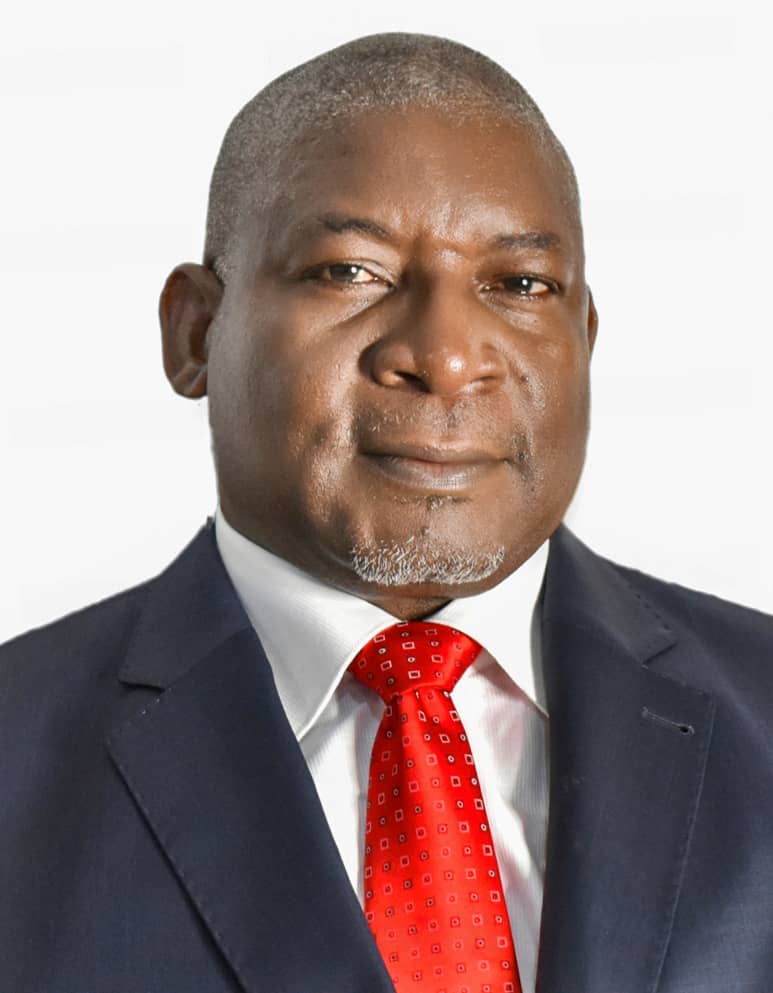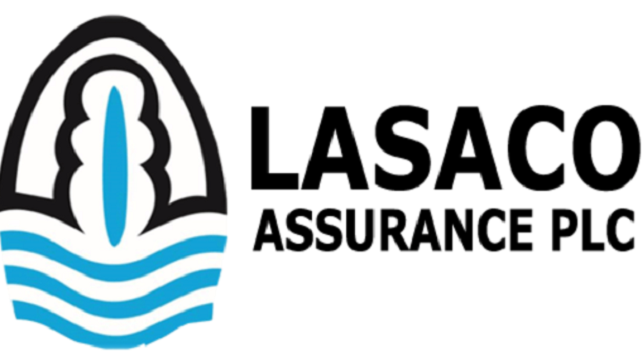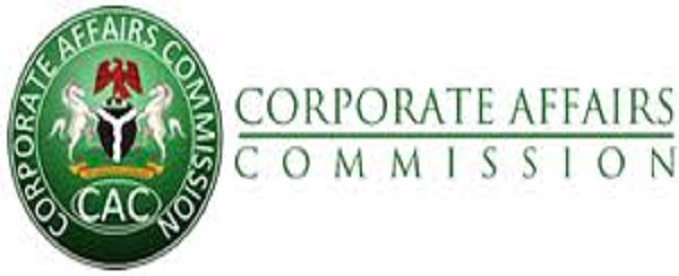News
Massive N197bn Contract Fraud Uncovered in MDAs by Auditor-General

A recent report by the Auditor-General of the Federation has uncovered financial irregularities totaling over N197.72 billion across various ministries, departments, and agencies (MDAs) in Nigeria.

The report, which highlights systemic lapses in financial compliance and procurement processes, focuses on activities between 2020 and 2021.
The findings are detailed in the Auditor-General’s Annual Report on Non-Compliance and Internal Control Weaknesses and aim to assist stakeholders, including the National Assembly’s Public Accounts Committees, in addressing the identified lapses and recovering lost funds.
One of the key revelations involves irregularities in the award of contracts amounting to N7.39 billion across 32 MDAs. These breaches contravened Paragraph 2921(i) of the Financial Regulations (2009), which mandates open competitive bidding for all procurement processes.
“The sum of N7,386,551,051.09 (seven billion, three hundred and eighty-six million, five hundred and fifty-one thousand, fifty-one naira, nine kobo) was the amount of irregularities in the award of contracts by 32 ministries, departments, and agencies,” the report stated.
The Rural Electrification Agency, Abuja, recorded the highest irregularity in this category, amounting to N2.12 billion, while the Nigerian Security Printing and Minting Company (NSPM) accounted for the lowest irregularity, at N11.72 million.
Another major finding was the payment of N167.59 billion for jobs or contracts that were either partially executed or not executed at all, violating Paragraph 708 of the Financial Regulations.
“The sum of N167,592,177,559.40 (one hundred and sixty-seven billion, five hundred and ninety-two million, one hundred and seventy-seven thousand, five hundred and fifty-nine naira, forty kobo) was the amount of payments for jobs/contracts not executed by 31 ministries, departments, and agencies,” the report noted.
The Nigerian Bulk Electricity Trading Plc, Abuja, accounted for the highest irregular payment at N100 billion, while the National Centre for Women Development recorded the least irregularity at N2.17 million.
Violations of due process in contract awards were also highlighted, totaling N20.33 billion across 24 MDAs. Section 16(21) of the Public Procurement Act (PPA) 2007 requires strict adherence to procurement plans and mandatory approvals before contract awards. However, the report found these requirements were often ignored.
“The sum of N20,334,104,016.27 (twenty billion, three hundred and thirty-four million, one hundred and four thousand, sixteen naira, twenty-seven kobo) was the amount of contracts awarded in violation of due process by 24 ministries, departments, and agencies,” it read.
The NSPM, Abuja, accounted for the highest amount of violations in this category, totaling N14.14 billion, while the Corporate Affairs Commission recorded the least, at N8.98 million.
Additionally, contracts worth N2.41 billion were awarded above approved financial thresholds without obtaining the required “Certificate of No Objection” from the Bureau of Public Procurement.
“The sum of N2,407,710,913.92 (two billion, four hundred and seven million, seven hundred and ten thousand, nine hundred and thirteen naira, ninety-two kobo) was the amount of contracts awarded above the threshold by five ministries, departments, and agencies,” the report added.
The Ahmadu Bello University Teaching Hospital, Zaria, recorded the highest amount of violations in this category at N1.06 billion, while the Federal Medical Centre, Bida, accounted for the least amount, at N9.9 million.
The report categorized these issues as “cross-cutting,” indicating systemic flaws across multiple MDAs. It criticized weak internal controls within the agencies and called for stricter enforcement of financial regulations to prevent future occurrences.
The revelations have raised concerns about the government’s ability to manage public funds efficiently, especially amid economic challenges such as inflation and rising debt.
In response to the report, the Centre for Anti-Corruption and Open Leadership (CACOL) has demanded a thorough investigation into alleged misappropriation of N4.64 billion by the Ministry of Works and Housing, under the leadership of Babatunde Fashola.
The Auditor-General’s report identified financial irregularities in the housing sector between 2020 and 2021, including payments made without proper documentation, extra-budgetary expenditures, mobilisation fees exceeding approved thresholds, and contracts awarded without following due process.
These findings underscore the urgent need for reforms to restore public confidence in Nigeria’s financial management system and ensure accountability for public funds.
News
Lasaco Assurance to Invest in Technologies, Systems to Deliver Value to Clients

Lasaco Assurance Plc, has said it would continue to invest in technologies and systems that delivers tangible value to clients and drive industry innovation.

Mr Abiodun Razzaq, Managing Director of Lasaco Assurance, who stated this at the 2025 customer forum organised by the company for its northern region customers in Abuja, said the forum’s interactive session offered an invaluable platform for open and constructive dialogue.
He said the forum brought together a distinguished assembly of customers, including policyholders, brokers, corporate clients, and industry partners, to engage in a robust dialogue aimed at enhancing service delivery and aligning offerings with the evolving expectations of the Northern market.
In his opening remarks, Regional Manager (Northern Region), Lasaco Assurance, Mr. Kunle Hamza underscored the company’s unwavering dedication to stakeholder engagement as a foundational pillar of its growth strategy. He emphazised that customer insights remain integral to shaping policies, refining service processes, and reinforcing the company’s brand promise.
He provided a compelling overview of Lasaco assurance’s recent performance and strategic priorities. He highlighted the company’s consistent premium income growth, bold digital transformation agenda, and ongoing operational restructuring designed to ensure responsiveness and resilience in a dynamic insurance landscape.
Addressing the customers, Mr. Adedayo Adetokun, Head of Strategy, affirmed that Lasaco assurance was actively developing multiple digital platforms to cater forvarious customer segments—part of a broader digital innovation roadmap that positions the company for future growth. He noted that human capital development was also being prioritised with targeted investments in talent acquisition and training to enhance operational capacity.
In his closing remarks, Mr. Muyiwa Anwoju, General Manager, Sales, expressed the management’s deep appreciation for the feedback received.
He assured participants that all contributions would be meticulously reviewed, categorised, and integrated into the company’s improvement plans. According to Anwoju, this forum marks the beginning of a renewed customer engagement framework, one that would be expanded across other regions in due course.
News
CAC Announces Upward Review of Service Fees

Corporate Affairs Commission (CAC) has announced an upward review of its service fees, which will take effect from August 1, 2025.

The announcement was made through the commission’s official social media page on Tuesday, June 17, 2025.
According to the CAC, the fee adjustment was necessary due to the current economic conditions, rising operational costs, and input from key stakeholders.
The statement read, “The Commission wishes to inform the General Public, Esteemed Customers, and all Stakeholders that in the continued efforts to improve its service quality and delivery, it has become necessary to review certain service fees effective the 1st day of August 2025.”
The commission explained that the fee changes are part of efforts to deliver better and more digitalised services while maintaining the integrity of Nigeria’s corporate registry.
The revised fee structure will affect services related to companies, business names, limited partnerships, and incorporated trustees.
Key fee changes announced by the Corporate Affairs Commission (CAC) include adjustments across various service categories.
For voluntary striking-off, the fee is now ₦50,000 for small companies and ₦100,000 for public companies, up from the previous ₦25,000.
Relisting a company will cost ₦50,000 for LTD/GTE and ₦100,000 for public companies.
Due diligence through self-service is set at ₦50,000. Requests for extension of time to hold an annual general meeting will now cost ₦100,000 for public companies and ₦50,000 for others.
Historical search reports will range from ₦20,000 to ₦30,000 per request. A restriction of a director’s residential address now attracts a ₦25,000 fee, while obtaining a certified true copy of documents or extracts will cost ₦5,000 per copy.
For limited partnerships, both voluntary striking-off and relisting will cost ₦25,000. A letter of good standing will be ₦10,000, registration and certified copies of documents will be ₦30,000, and a change of name will attract a ₦10,000 fee.
Regarding business names, voluntary striking-off is now ₦10,000, relisting ₦25,000, and an application for cessation ₦10,000. The certified true copy of documents will cost ₦5,000 each, and restriction of a proprietor’s address will also be ₦25,000.
Name reservations remain at ₦1,000, while reserved names with restricted words still cost ₦5,000.
The new fee structure is expected to impact business owners, lawyers, compliance officers, and others who interact with the corporate registry.
News
Global Travel Made Simple with Kaspersky eSIM Store

Kaspersky eSIM Store is a new connectivity solution for international travel. Designed to make it easier for leisure and business travellers to stay online globally, it empowers users with easy Internet access across 150+ countries and regions, with a choice of over 2,000 affordable data plans.

The production of eSIM-compatible devices has increased tenfold in the last five years according to the GSMA. By 2028, it is expected that half of all mobile connections worldwide will use eSIM technology.
This rise in popularity is driven by eSIM’s convenience and ease of use – eliminating the need for physical SIM cards and enabling a hassle-free experience wherever you go.
To meet this growing trend, Kaspersky eSIM Store provides access to eSIM plans from local telecom operators all over the world – with an easy interface and simple management.
A new way to always stay connected
Kaspersky eSIM Store lets users to enjoy affordable and easily accessible Internet connections around the globe without the hassle of physical SIM cards. Users can seamlessly access eSIM plans from local telecom providers in 150+ countries and regions worldwide, providing favourable rates and transparent conditions without any roaming fees.
While travelling, an eSIM can help users avoid high roaming costs on a primary SIM, remove the need to search for a local SIM kiosk and share personal data with them, as well as avoiding the use of unsecured public Wi-Fi networks.
Instead, eSIM ensures that leisure travellers can focus on the joyful moments of their trip and instantly share them with friends and relatives, while business travellers have continuous access to important messages, working documents and video calls.
Seamless connection in a few taps
Kaspersky eSIM Store features a user-friendly interface for plan selection, purchase, top-ups, and data usage management. Travellers can choose their preferred activation date, allowing them to set up their eSIM in advance and be connected the moment their trip begins — all in just a few taps.
To match the needs of any traveller, there are many flexible ways to choose and manage data plans.
Options are available based on destination, including plans for specific countries, global plan 122 destinations, or mini-global plans tailored to specific regions.
For trip duration, travellers can select between expiring plans valid for a fixed period or non-expiring plans that remain active until the data is fully used. This ensures convenience whether the trip is short or long.
Additionally, users have control over when their plan starts. They can either schedule activation for a specific date or begin using the data immediately, providing flexibility to align with their travel schedule.
To ensure users never run out of GB unexpectedly, Kaspersky eSIM Store provides real-time data usage monitoring and alerts when a balance is near zero. The user profile (on the webpage or in the app) allows quick top-ups and supports multiple countries on a single eSIM – install once and use for a lifetime.
Kaspersky eSIM Store is launched in partnership with award-winning provider BNESIM Limited, which has been delivering global eSIM services since 2017.
“At Kaspersky we are constantly keeping up with latest trends shaping our digital habits, and eSIM is definitely one of them. eSIM technology greatly simplifies travelling abroad, allowing people to stay connected and not worry about issues like roaming charges.
“We know from our own experience how important it is to stay in touch with your family or colleagues when you are on a trip, so we designed Kaspersky eSIM Store for all types of travellers to ensure instant access to eSIM data plans wherever they go, as well as to provide a safe and positive digital experience,” – Mikhail Gerber, Executive Vice President, Consumer Business, Kaspersky.
Kaspersky eSIM Store complements Kaspersky’s wide range of industry-recognised solutions, such as Kaspersky VPN Secure Connection and Kaspersky Premium. Together they cover all modern connectivity needs and enhance digital freedom – ensuring safe, worry-free connectivity across the world.

 Telecom2 days ago
Telecom2 days agoALTON Clarifies on Migration to End-User Billing for USSD Services

 Telecom3 days ago
Telecom3 days agoGSMA, Mobile Industry Call for Strengthened Action to Advance Child Online Protection in Africa

 News2 days ago
News2 days agoDigital Africa Global Consult, NDPC Partner on Ground-Breaking “Nigeria Data Challenge” Initiative

 General News3 days ago
General News3 days agoTD Africa, HP Strengthen Partnership to Advance Africa’s Tech Ecosystem

 E-Financial2 days ago
E-Financial2 days agoNigerian Stock Market Suffers ₦183 Billion Loss Amid Profit-Taking

 News2 days ago
News2 days agoDStv Rewards Loyal Customers with Free Package Upgrades

 Telecom2 days ago
Telecom2 days agoLagos Future Conference 2025: Stakeholders Call for Digital Responsibility and Grassroots Innovation

 General News2 days ago
General News2 days agoAfrican Parliamentarians Seek Answers from Telcos on Quality of Service




























